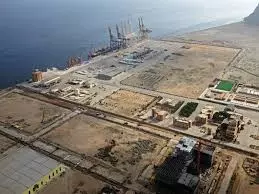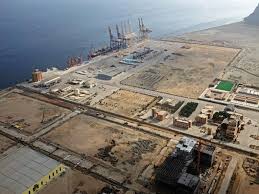
There is a rather flowery description attributed to the relationship between China and Pakistan — “a friendship higher than the Himalayas, deeper than the ocean, sweeter than honey, and stronger than steel”. A more commonly used term to describe the relationship is “iron brothers”. But beyond the official shenanigans, the ground reality does not seem very brotherly, after all.
In November 2018, gunmen attacked the Chinese consulate in Karachi and killed four people. In April 2022, armed gunmen killed three Chinese tutors in a suicide bombing attack in Karachi University’s Confucius Institute. Earlier this year in March, a naval airbase near Gwadar port (the focal point of Chinese investment and presence in Pakistan). Recently again, a suicide bomb attack outside of Karachi’s Jinnah Airport killed two Chinese engineers. The attackers in all these cases had specifically targeted Chinese personnel, investments or interests in Pakistan. The obvious targets have been in and around the various imperatives of the approximately $62 billion China Pakistan Economic Corridor (CPEC), an arterial extension of Beijing’s Belt and Road Initiative.
Given that the majority of CPEC initiatives run through the vast swathes of the restive region of Balochistan, it is the secessionist Baloch Liberation Army (BLA) that is the usual suspect behind most of the attacks. In their eyes, the Chinese are the new usurpers and plunderers of Balochistan’s natural resources, without fairly sharing the same with the locals, much like the historical impression about the Pakistani State. It is also a fact that despite a vast bounty of natural resources like coal, sulphur, chromite, iron ore, barytes, marble, quartzite, etc, the Baloch people have been denied the socio-economic and infrastructural development that has been disproportionately afforded on the more politically powerful regions like Punjab, Sindh or even Khyber Pakhtunkhwa.
Disaffection amongst the Baloch against the Pakistani State has gone beyond economic and cultural diminishment towards one of the majority Baloch being convinced of continuing human rights violations with violent suppression, mysterious disappearances and denials, that have worsened over time. The Chinese are seen as hand-in-glove partners of that loot “system” with the CPEC projects viewed as examples of further pillage.
Sensing the gravity of the security situation, Pakistan has now deployed two dedicated Army divisions (34th Light Infantry Division or Special Security Division, North and South) towards the protection of Chinese interests on its CPEC project sites.
Similarly, the Pakistan Navy has a dedicated Task Force-88 which is tasked with protecting against seaborne threats around the Gwadar Port and the protection of the associated sea lanes.
Recently, the Economic Coordination Committee (ECC) of the Pakistan Cabinet further approved a supplementary grant (over and above the already approved defence budget of 2.13 trillion Pakistani rupees) of an additional 24 billion Pakistani rupees to further strengthen the protection of Chinese assets and personnel. The Chinese are still not convinced and have sought the establishment of a “joint company” to ensure the security of its citizens — an embarrassing suggestion that implies that the Pakistani military may not be able to guarantee such safety on its own, thus possibly requiring a Chinese security apparatusto be brought in.
The Baloch Liberation Army (BLA) has claimed responsibility for the latest attack and left no doubt about the specificity of the target as they clarified that they had “targeted a high-level convoy of Chinese engineers and investors”. For once the usual reference to a “foreign power” (read India and RAW) was given a miss, given the organic insurgency flaring in Balochistan, besides the relentless attack by other forces like the Tehreek-e-Taliban Pakistan (TTP), a metastasized version of Pakistan’s own creation, the Afghan Taliban. Beyond the platitudinous promises that follow all such attacks, the Chinese are clearly worried as its ministry of foreign affairs issued a terse warning to “remind Chinese citizens, enterprises and projects in Pakistan to keep a close eye on the local security situation, strengthen security measures and take every precaution to keep themselves safe”.
There is a situational irony with the expected alacrity with which the Chinese and the Pakistanis want to include a so-called Majeed Brigade (supposed suicide wing of BLA) into the list of sanctioned entities, as maintained by the United Nations Security Council (UNSC). Earlier efforts to do the same were apparently blocked by some members stating the lack of enough evidence against the same. Bringing the same under the UNSC 1267 Committee would cripple its operations with an asset freeze, travel ban and arms embargo. But the veto by some members disallows the same, which the Chinese and Pakistanis believe is because it serves the “ulterior purpose” of some countries.
There is a sense of cruel déjà vu apparent with the Chinese playing hardball earlier, in repeatedly vetoing a resolution to sanction Masood Azhar (leader of the India-facing Jaish-e-Mohammad) as a global terrorist. While the Chinese had ultimately acceded to the same after much international pressure, it had knowingly irked India towards its own “ulterior purpose”.
While India does not support violence or organisations which make use of terrorism as it does not distinguish, for example, between the “good Taliban” versus the “bad Taliban”, it is a lesson that Pakistan is learning the hard way after breeding religious extremism and violent forces. The Chinese, who played along for their own “ulterior purpose”, are now facing a taste of the medicine that was unleashed by its “iron brother”: as the maxim goes, what goes around, comes around.
